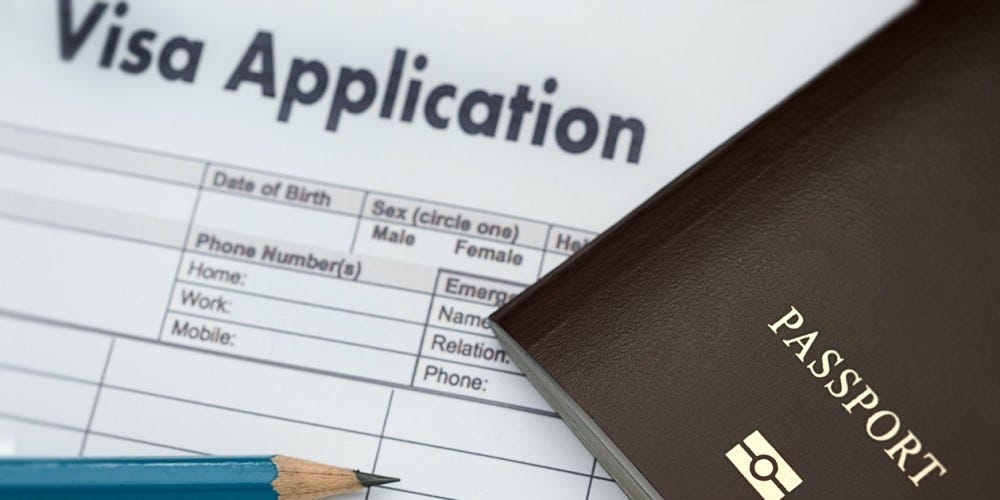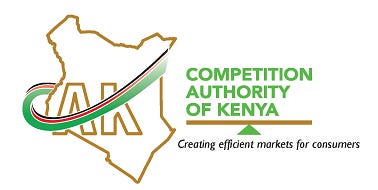Happy New Week,
Kenya and Egypt to remove visa requirements
Alfred Mutua, the Cabinet Secretary for Foreign and Diaspora Affairs, announced that Kenya and Egypt were collaborating to establish a visa-free system for ordinary passports between the two nations.
“In line with the African vision of AfCFTA (African Continental Free Trade Area), we agreed on free visa entry for diplomatic & official passports of both countries from 1 April, and finalize discussions towards a free visa regime for ordinary passports by October 1” - Cabinet Secretary for Foreign and Diaspora Affairs
The agreement was established after bilateral discussions between CS Mutua and Egypt’s Minister of Foreign Affairs, Sameh Shoukry, in Cairo.
During the bilateral talks, the two agreed on ways to enhance the social, political and economic cooperation between the two countries, emphasizing immediate and sustainable benefits.
Specific areas of cooperation include:
The export of Kenyan Tea, Coffee, Nuts, Meat, Wheat, and Flowers to Egypt
Fertilizer and Irrigation Programs
The two countries agreed to hold the 7th Kenya-Egypt Joint Commission for Cooperation (JCC) within weeks, to solidify and expand trade deals between both countries for fast and practical benefits.
TRADE
1. Kenya's Tea Industry Suffers Major Setback as Sh1.3 Billion Worth of Tea is Stuck at Port of Karachi, Pakistan
The Port of Karachi is holding Kenya's tea worth Ksh 1.3 billion as Pakistan faces a shortage of dollars, which has limited banks from providing traders with Letters of Credit necessary for offloading.
According to traders, at least 200 containers carrying 4.8 million kilograms of tea, are being held at the port. This has negatively affected sales back in Kenya and lowered prices.
In addition, Pakistani traders cannot purchase more tea from Kenya because they lack Letters of Credit to guarantee payment to sellers. David Ichoho, the chairman of the Kenya Tea Development Agency (KTDA), said that talks with China and the World Bank were underway to address Pakistan's current financial crisis. In his statement, he believes that the situation will improve in the coming days.
2. The Kenya Dairy Board suspended the importation of milk powder into Kenya
The Kenya Dairy Board ordered the indefinite suspension of milk powder imports in Kenya. The regulator stated that the rains are expected this month, an outcome that will significantly boost local milk production and reduce the need for imports.
“In anticipation of the long rains, the government has stopped the importation of milk powders to cushion the industry from surplus production and low producer prices” - Kenya Dairy Board managing director Margaret Kibogy wrote to milk powder importers in a letter dated March 6.
The regulator stated that it would continue to monitor the production and demand dynamics of the commodity before deciding when imports of milk powder would resume.
The ban aims to protect processors and farmers from lower prices since the milk powder imports could lead to a glut in the market.
ENERGY
Fuel Marketing Companies Challenge Government's Proposed Oil Import Agreement in High Court Petition
Fuel marketing companies submitted a petition to the High Court to contest the proposed government-to-government oil import agreement tender.
The claim by fuel marketers
That they have been left out of the bidding process for the international tender, which is intended to provide all petroleum products used in Kenya.
That the government’s decision to select a local oil marketer violates the Open Tender System, which requires marketers to bid competitively.
That the government did not conduct public participation and stakeholder consultation before publishing the rules, violating the constitution.
Proposed oil import Agreement
As part of the plan, the National Oil Corporation of Kenya (Nock) is set to be granted exclusive rights to import one-third of all fuel products into the country, which will include super, diesel, kerosene, and cooking gas.
This move is intended to provide strategic stocks and prevent shortages of these commodities due to global disruptions.
REGULATION
Competition Authority of Kenya to conduct a market inquiry into Online food delivery platforms
The Competition Authority announced (via a gazette notice) that it has initiated a market inquiry focused on examining the Online Food Delivery and Groceries Platforms in Kenya.
According to the gazette notice, the regulator plans to better understand the business model and, ultimately, inform regulatory and policy interventions for enhanced competition and consumer protection enforcement.
The authority stated that it would:
Identify players and services involved in the food delivery and groceries platforms business model in Kenya and examine the relationships between the platforms and the users.
Assess the role of data in operating multi-sided online platforms, customer acquisition, retention as well as data portability, e-payment services and their importance in relation to the food delivery and groceries platforms business model to better understand the consumer protection concerns.
Assess the relevance of the existing regulatory framework and its applicability in the digital markets, to guide better policy making.
Looking Forward
According to the CAK acting Director-General Adano Wario, the authority will receive views from all stakeholders within 21 days and also hold meetings with Key Informant Interviews
Traders to face higher import costs as KRA will begin levying taxes on each individual item in containers
The Kenya Revenue Authority (KRA) announced a new measure aimed at increasing tax collection from small traders who import goods in bulk.
Instead of paying taxes per kilogram, individual traders will now be required to pay taxes for each item they import. This change will apply to items that are sold in open-air markets such as Gikomba and Nyamakima and will include import duties, Value Added Tax (VAT), excise duty, import declaration levy (IDL) and Railway Development Levy (RDL).
As a result, the cost of consolidated cargo will increase, with air cargo currently attracting a duty of Sh200 per kilogram and a 40-foot container transported by sea costing Sh2.2 million. Consolidators are currently charging traders Sh896 ($7) per kilogram for air cargo and Sh640 ($5) for sea freight.
WHAT YOU MUST HAVE MISSED
UK launched a new visa application center in Kenya
The United Kingdom (UK) launched a new visa application center in Kenya, which will now take 15 working days to get visas (down from six weeks).
Jane Marriott, the British High Commissioner to Kenya, announced that United Kingdom visa printing will now take place in Nairobi to alleviate delays.
According to the High Commissioner, approximately 40,000 Kenyans travel to the UK every year, and the enhancements made to the application center will have a positive impact not only on Kenyans visiting the United Kingdom but also on the entire East Africa region.
Carrefour faces issues with the Competition Authority over abuse of buyer power
On Friday, the Competition Authority of Kenya (CAK) referred to a case filed by Pwani Oil, an edible oils producer, accusing Carrefour of charging rebates in a manner that is considered buyer abuse.
Supplier rebates are monetary incentives offered to customers as a way to encourage specific types of purchases. They are provided by suppliers to gain more business or secure future sales.
Stima Saccos experienced system outages affecting customers’ transactions
Last week, Stima Sacco experienced intermittent system outages affecting thousands of its customers. The outages mainly affected the MPawa and USSD code systems, making it impossible for customers to carry out transactions such as cash deposits and withdrawals using mobile platforms.
Despite efforts to fix the issue, the interruption persisted for several days, leaving approximately 177,260 customers with no choice but to use the counter for their banking needs.








